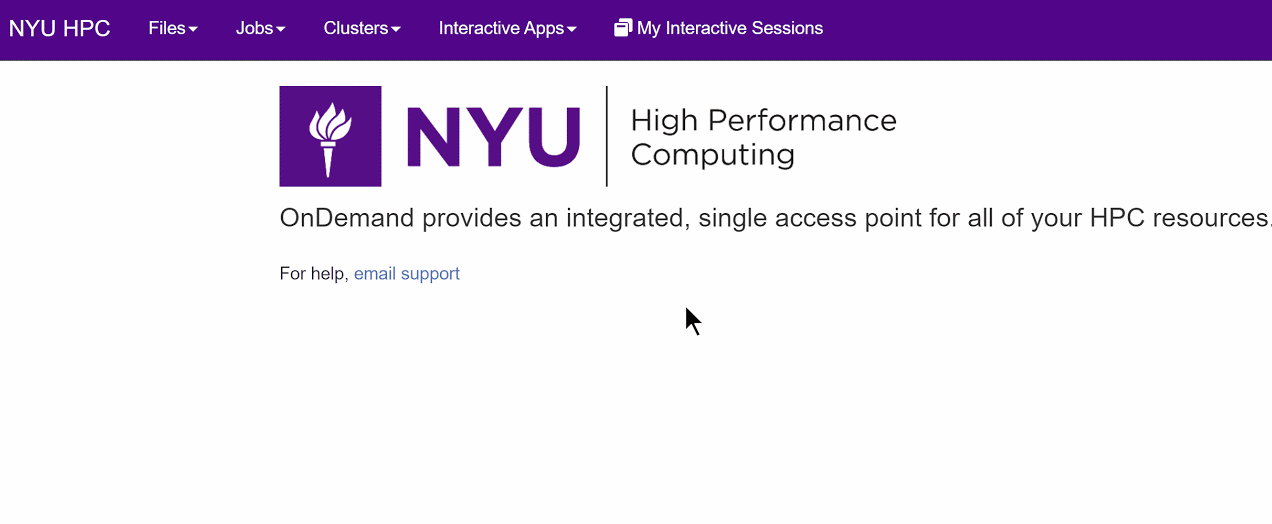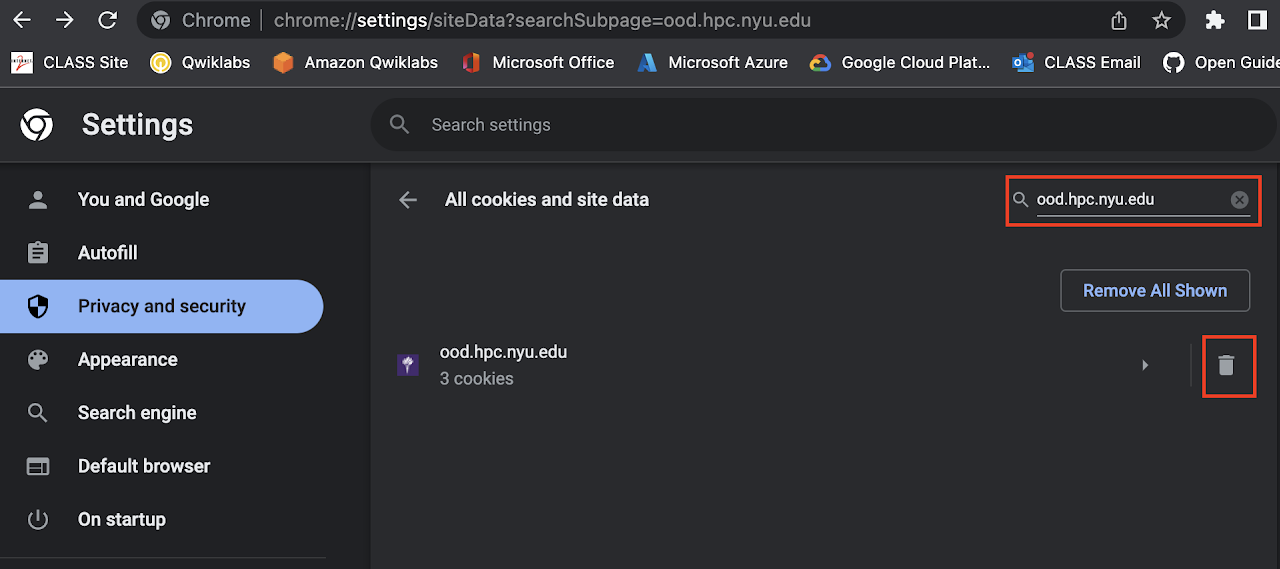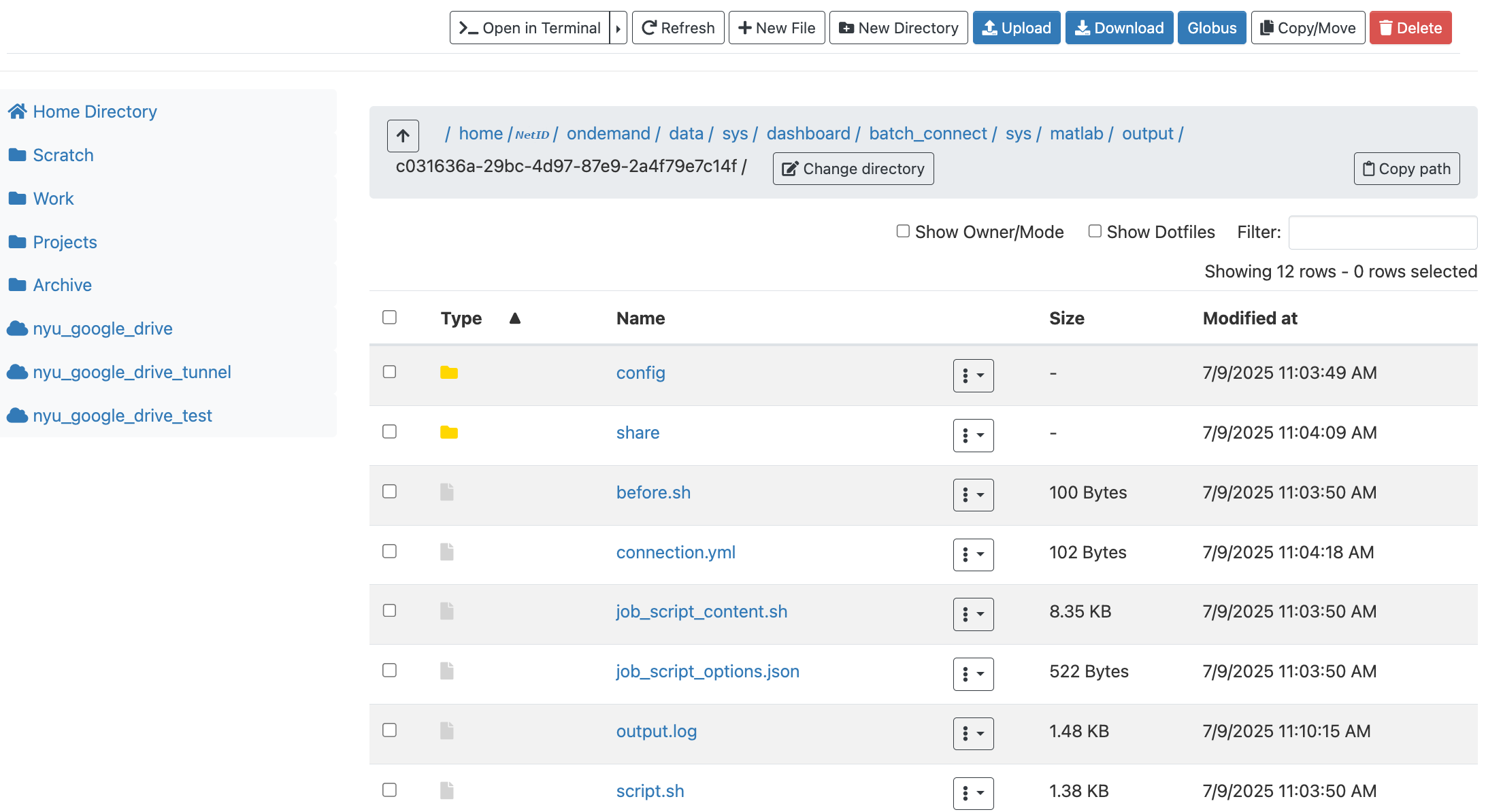Introduction to Open OnDemand (OOD)
A Web-based Graphical User Interface
OOD is designed to create easier access for users to interface with HPC systems. It comes with a variety of convenient tools to manage files, access the command line, manage and monitor jobs, and launch interactive applications, such as Jupyter Notebooks, RStudio sessions, and even full Linux Desktops. Features Include:
- Easy file management - upload and download files, view HTML and pictures without downloading
- Command-line shell access without any SSH client locally installed
- Job management and monitoring
- Full Linux desktop experience without X11
- Interactive Apps such as JupyterHub and RStudio without the need for port forwarding
It is accessible to all users with a valid NYU HPC account while on-campus network or through NYU VPN via https://ood.torch.hpc.nyu.edu.
Access the Shell
Under the clusters menu you can select the Torch Shell Access option to access the Linux shell. No local SSH client is required.

Please see our documentation on Submitting Jobs if you'd like detailed instructions.
Interactive Applications
GUI based applications are accessible without the need for port or X11 forwarding. Select the Interactive Apps menu, select the desired application, and submit the job based on required resources and options.

Troubleshooting
You must be on the NYU VPN to be able to access the Open On Demand gateway! For instructions on setting up NYU VPN, please see this page.
Connections to Open OnDemand
A common issue that can occur is receiving an error that the Open OnDemand page cannot be reached. Sometimes this can indicate that the service is down, but often this is an issue with the the local browser cache. You can test this by opening a private browser window and seeing if https://ood.torch.hpc.nyu.edu will load. If it does, try deleting the cache for https://ood.torch.hpc.nyu.edu in your browser history to resolve this issue.
In Chrome, this can be done by navigating to this page in your settings:
chrome://settings/content/all?searchSubpage=ood.torch.hpc.nyu.edu&search
The link above will automatically search for the Open OnDemand site data and cookies. You can then simply click on the trashcan icon to delete the site cache.

Once done, try navigating again to https://ood.torch.hpc.nyu.edu and the site should load. For other issues please email hpc@nyu.edu.
Viewing Logs
When problems arise one of the best ways to figure out what went wrong is to look in the logs. You can do this in two ways for OOD: from within OOD itself or via the terminal.
From within OOD
You can view session logs for interactive apps from within OOD if they are still visible within Home / My Interactive Sessions.

Just click on the Session ID link and a tab will open with the contents of the directory that contains your session logs.

output.log is probably the most informative for debugging. Simply click on output.log and the contents will be displayed.
From terminal
If your session is no longer visible from within OOD you may still be able to find your logs via the terminal. Simply log into Torch and cd to /home/$USER/ondemand/data/sys/dashboard/batch_connect/sys/ and then cd into the directory for the app that you're interested in. You should find the file output.log there.